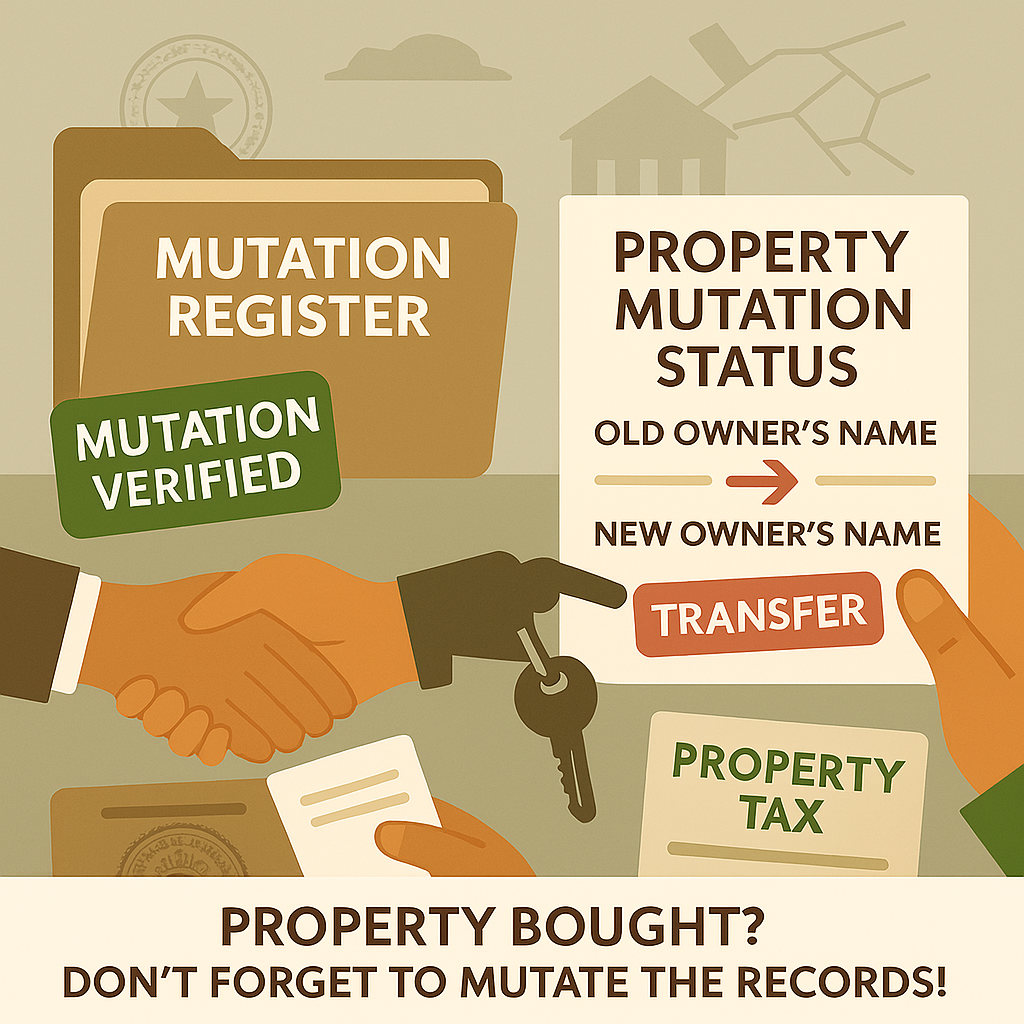Property Mutation: What It Is and Why You Need It

After buying a property, your job isn’t done until the mutation is complete. It’s how the government officially recognizes you as the new owner.
What Is Property Mutation?
-
It’s the process of updating government land records with the new owner’s name
-
Also known as Dakhil Kharij in many states
-
Helps local authorities assign property tax, utility bills, and legal notices to the rightful owner
Why It Matters:
-
Legal Recognition: Confirms your ownership in municipal records
-
Tax Compliance: Ensures tax bills come to you, not the previous owner
-
Loan & Resale Ready: Banks and future buyers demand updated mutation records
-
Avoids Disputes: Prevents fraud or confusion over ownership
How to Get It Done:
-
Apply at the local municipal office or online (if your state offers it)
-
Submit:
-
Registered Sale Deed
-
Latest property tax receipts
-
ID/address proof
-
-
Pay the nominal mutation fee
-
Receive the Mutation Certificate once approved
Timeline: Usually takes 15–30 days depending on the state
- Lakshadweep
- Delhi
- Puducherry
- PROPIINN
- Arunchal Pradesh
- Assam
- Bihar
- Chhattisgarh
- Goa
- Gujarat
- Haryana
- Himachal Pradesh
- Jharkhand
- Karnataka
- Kerala
- Maharashtra
- Madhya Pradesh
- Manipur
- Meghalaya
- Mizoram
- Nagaland
- Odisha
- Punjab
- Rajasthan
- Sikkim
- Tamil Nadu
- Tripura
- Telangana | Andhra pradesh
- Pulse
- Uttar Pradesh
- Uttarakhand
- West Bengal
- Andaman and Nicobar Islands
- Chandigarh
- Dadra and Nagar Haveli and Daman and Diu
- Jammu and Kashmir
- Ladakh



